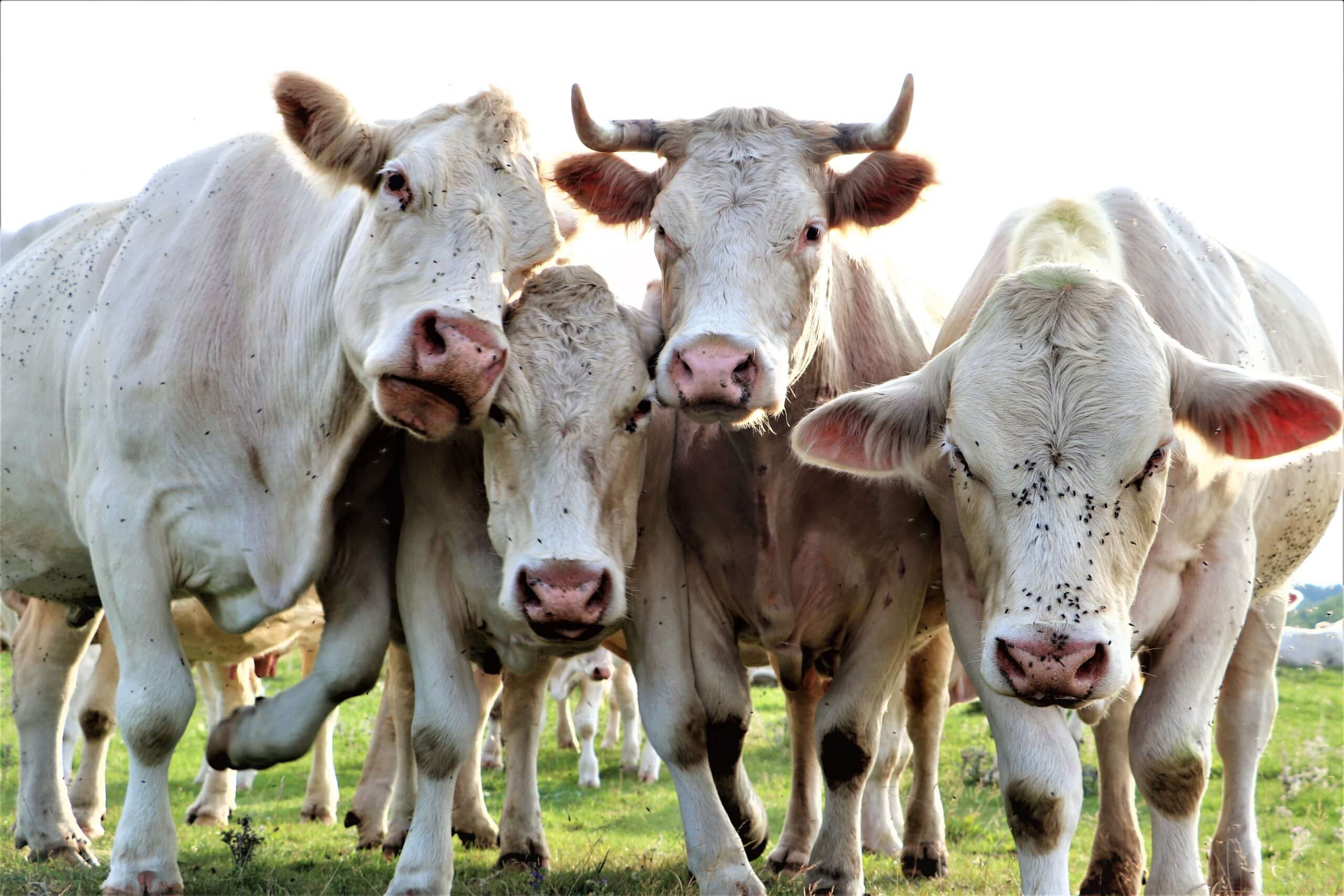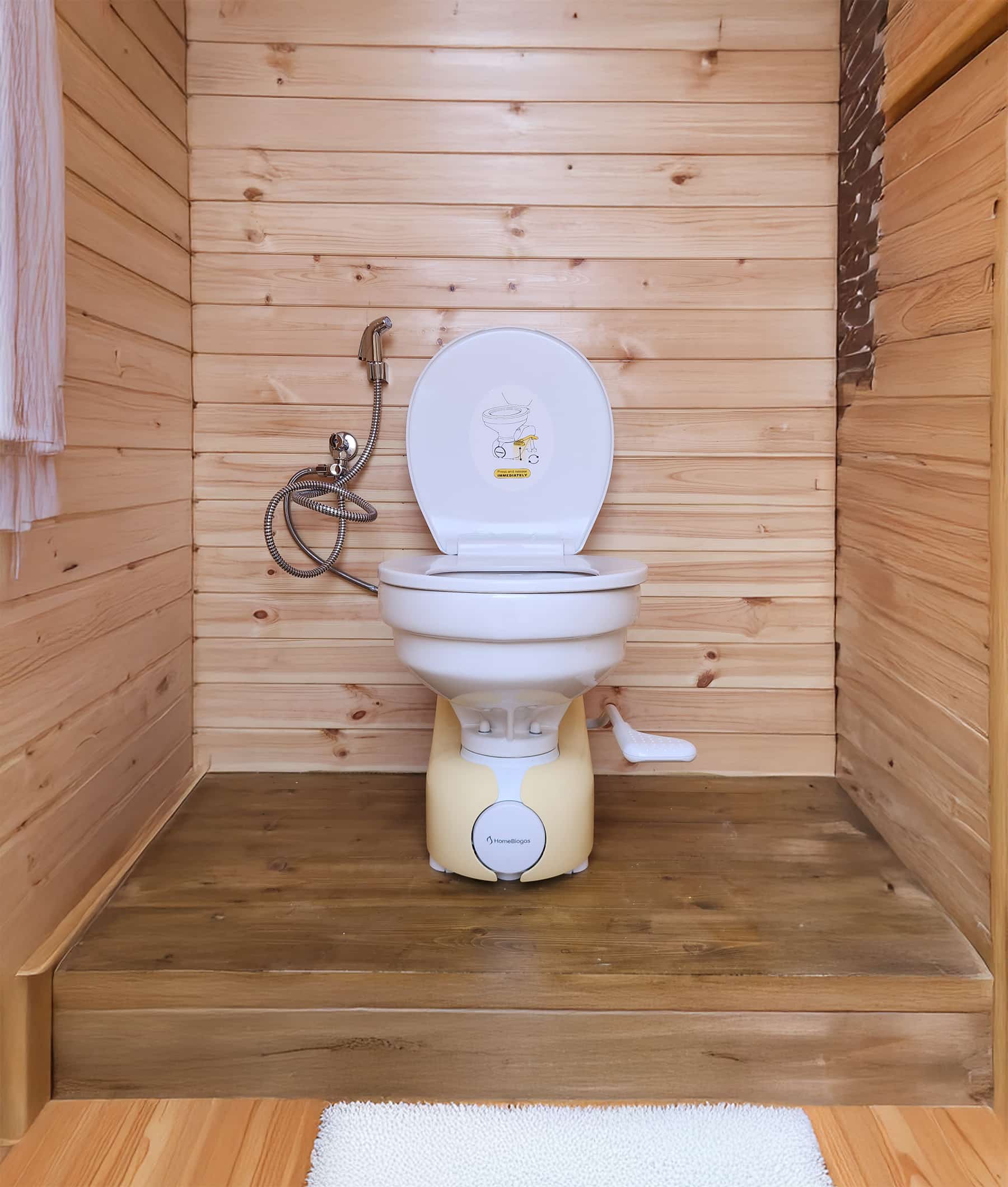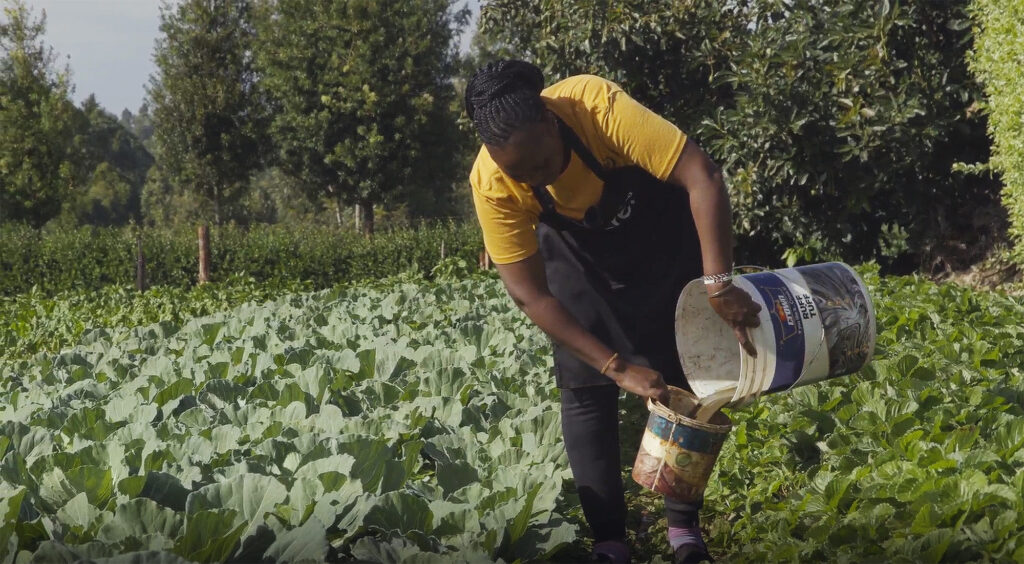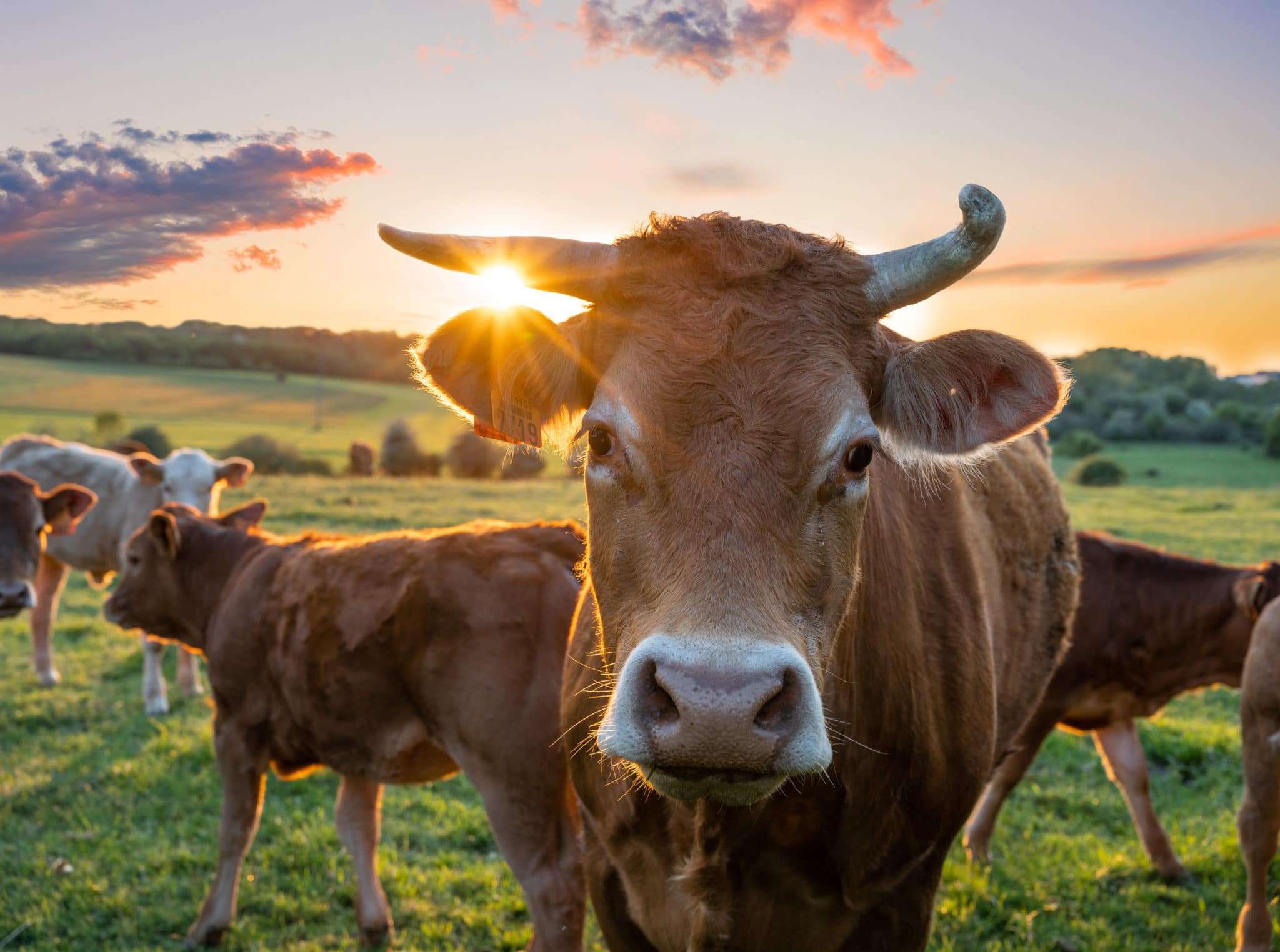
What is cow manure, and what is it suitable for?
Cow manure, also known as cow dung, is mostly digested grass and, depending on the cattle’s diet, grain, fruits, or vegetables. It’s not just cow droppings, as it contains tracks of hay, straw, bedding, grains, and other organic matter used to feed the animals.
Cow manure is rich in nutrients and is suitable for plant growth. It has 3% nitrogen, 2% phosphorus, and 1% potassium—3-2-1 NPK, making it the right type of fertilizer for almost all types of plants and crops. That’s because it brings back nutrient balance to fields organically.
However, cow manure is also rich in ammonia and, sometimes, can contain dangerous pathogens and bacteria, such as E Coli. So, an aging or decomposition process is necessary to break down the organic matter and eliminate the harmful substances before the manure gets to the fields.
The benefits & drawbacks of using cow manure
Fertilizing your crops with cow manure has pros and cons, so you should analyze the implications before gathering cattle poop on your property. To help you make an educated decision, here are the advantages and disadvantages of using cow manure as compost.
Advantages:
1. Cow dung improves soil structure, helps regenerate the soil, and is an effective source of nutrients needed for growing plants of all types, from grains to garden plants to fruit and vegetables.
2. It’s organic, so you can grow plants with no need for chemical products. Moreover, using cow manure as fertilizer is an eco-friendly way to manage cattle waste so that it doesn’t end up in fields where it can impact air and water quality.
3. If you control the composting process to enable anaerobic digestion inside biogas units, you can obtain biogas for cooking or heating, besides fertilizer.
Disadvantages:
1. You need relatively large quantities of fertilizer to ensure high-quality crops.
2. Composting cow dung outside biogas units will release high amounts of methane into the atmosphere.
3. Collecting, storing, and managing cow manure is time-consuming and dirty. Moreover, incidents can quickly turn into public health issues.
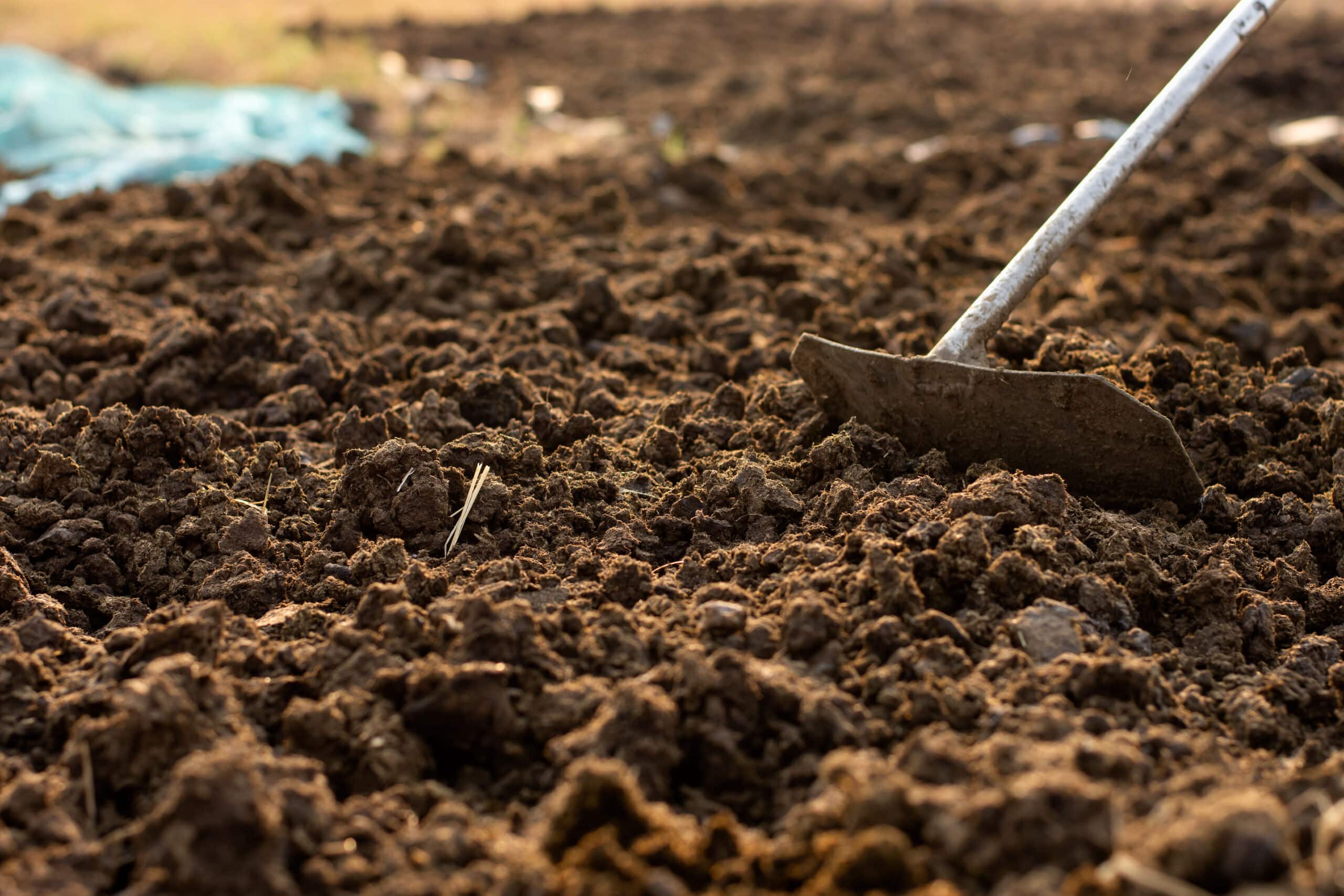
Cow manure composting: all you need to know
Now that you know how cow manure can help you give your garden a new life, you need to learn how to turn cattle waste into compost. As said before, you can’t use the waste just as it is due to the high amount of ammonia that could damage your culture. So, cow dung must go through a composting process where bacteria break down the organic matter to turn it into fertilizer.
As a general guideline, you can do it using three different procedures: aerobic digestion, hot composting, and vermicomposting.
Anaerobic digestion
Anaerobic digestion is a straightforward process in a sealed, oxygen-free environment. You the cow waste inside a digester, then bacteria break down the organic components and turn them into a series of elements.
Through this process, you’ll obtain:
- Biogas as a liquid (between 30 and 60 percent of the input) can be used for cooking or heating.
- Liquid fertilizer (usually called digestate) that serves to improve soil quality and boost your crops.
- Other residues in small quantities.
This way, you generate more than just fertilizer for your garden. You get to produce biogas and sustainable energy for your household in the form of cooking gas, for example. It’s a zero-waste process that helps you save money and positively impact the environment.
Hot cow manure composting
Hot composting is a biological process in which microorganisms break down raw organic waste and transform it into nutrient-rich organic matter. All you need to do is pile up the manure and let nature do the work.
In this case, you don’t need to provide a sealed environment for the cattle waste to decompose. Still, you’ll need to manage the process and periodically churn and turn the waste to ensure the decomposition occurs evenly inside the pile.
To obtain high-quality fertilizer, you need to mix cattle waste with other organic materials, such as hay, grass clippings, ceratin types of food waste, or even sawdust. The composting takes longer, and you have less control over the results.
It’s a process that occurs at high temperatures, generated by the microorganisms that break down the organic matter. As a result, weed seeds and other harmful pathogens get killed in the process—just like in the first case. However, to make it happen, you need to have a large pile so enough microorganisms can grow inside and reach the required temperature of a minimum of 55 Celsius (130 Fahrenheit) for several consecutive days.
Vermicomposting
Vermicomposting uses various types of earthworms (the most common is Eisenia foetida – red worm) to treat livestock organic wastes. In this process, earthworms consume fresh cow manure and transform it into vermicompost. According to studies, the fertilizer resulting from this process has a different composition from the one produced through traditional composting methods, but it’s still excellent for boosting crops.
In this case, you create a biobed and let the worms digest the manure. Depending on the amount of waste and the number of earthworms you have, the process can take anywhere from a few weeks to several months.
If you decide to use this method to produce fertilizer from cow manure, you need to watch the biobed because warms will reproduce during the process.
What does cow manure contain?
Cow manure composition can vary depending on the process you use to create the fertilizer and the other types of organic waste used. However, there are many elements common to all kinds of cow dung.
As a general rule, cow manure contains, among other elements:
- Macroelements: N, P, K — nitrogen, which determines the protein levels in plants; phosphorus, which impacts seed, fruit, and flower production in plants; potassium, which influences growth rate and water regulation.
- Microelements, such as iron and carbon
- Secondary elements: calcium, magnesium, and sulfur, all critical components in a plant’s cells.
At the same time, cow manure includes high quantities of water, making it easy for this fertilizer to balance soil pH levels and temperature with a positive impact on plant root growth and the overall biological activity in the soil.
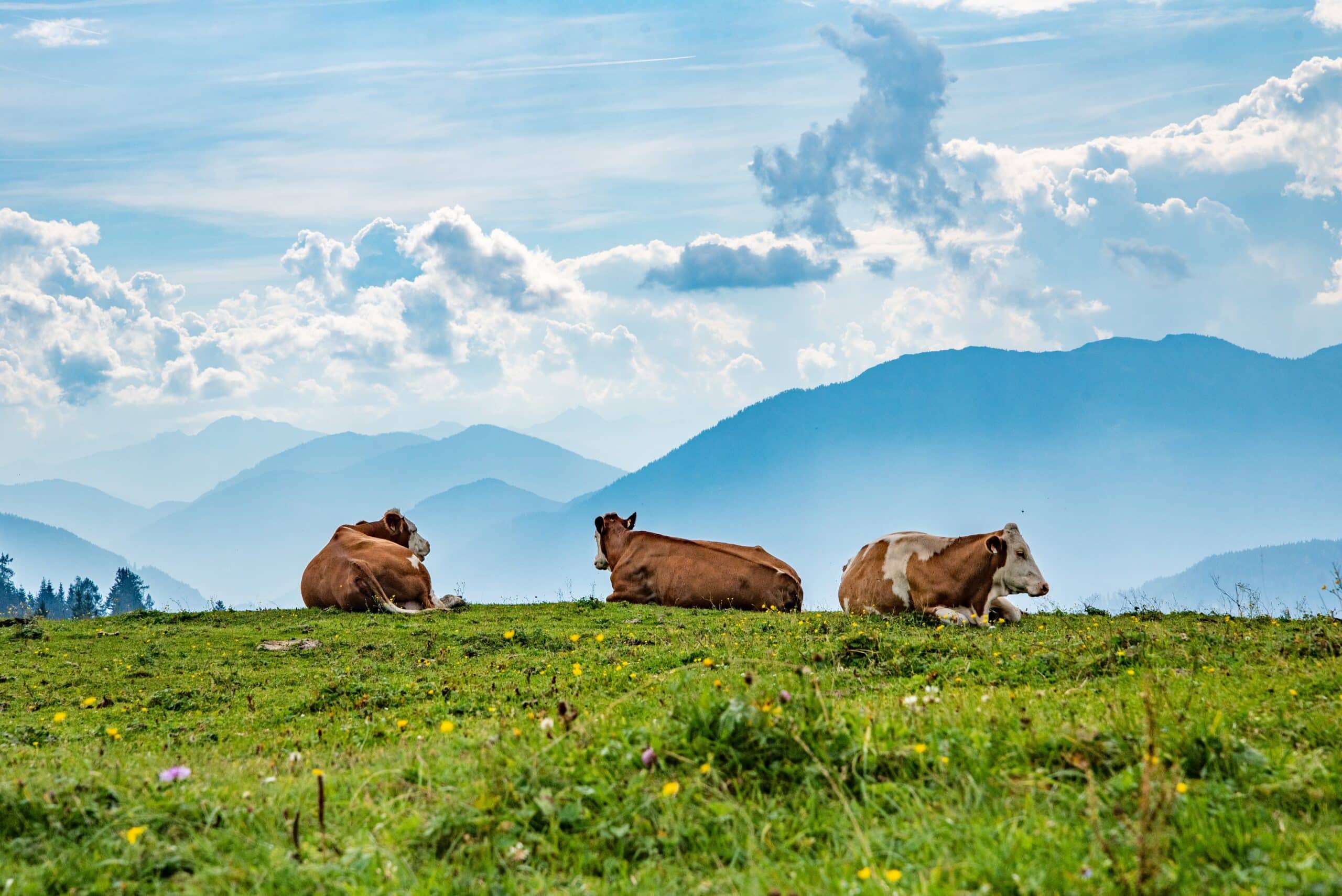
Is it safe to use cow manure?
Cow dung as fertilizer is safe when the composting process has been completed successfully. This way, the ammonia, and harmful pathogens no longer represent a risk for the plants, environment, and public safety.
If the waste is still not decomposed, spreading it in the landfill will contaminate the soil and freshwater sources.
Another element to consider is cow manure’s impact on the atmosphere. Cattle farming accounts for 18% of the total global emissions of greenhouse gases caused by humans, producing both methane (CH4) and carbon dioxide (CO2). When bacteria break down cow waste, amounts of greenhouse gasses arrive into the atmosphere, so you want to stay informed about how you can produce organic fertilizer with minimum impact on the environment.
Last but not least, storing and managing cow waste can be a challenge. You need to keep manure in areas far from drilled water wells, rivers, lakes, and ponds to avoid contamination.
HomeBiogas composting solutions
HomeBiogas systems use anaerobic digestion to manage cow manure in a sustainable, eco-friendly way. This process enables you to produce biogas that can be used as cooking gas, reducing the amount of gas released into the atmosphere.
The system includes a digester where the decomposition process takes place in a controlled environment to produce fertilizer and continuously supply gas from the organic matter. Another advantage is that you can throw in any type of kitchen and organic waste besides cow droppings to have a complete waste management solution.
Thanks to HomeBiogas’ filters and closed system design, you get to generate liquid fertilizer with no odors or risks of harming the environment or your family. It’s a zero-waste process that reduces the amount of cattle droppings in landfills while permitting you to produce cleaner energy than by using fossil-fuel sources.
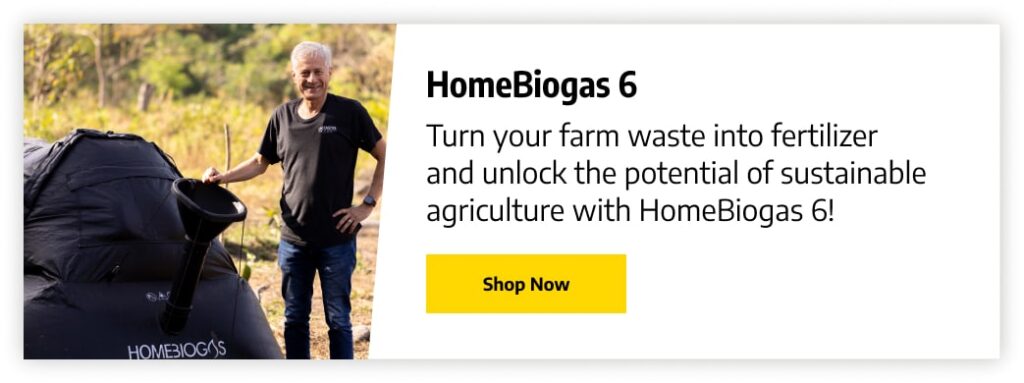
Summary
Cow manure composting is a cost-effective way to manage cattle waste and produce high-quality fertilizer for almost all types of plants. However, storing and managing cow droppings can be a challenge, and an incomplete decomposition process can harm your crops and the environment.
To minimize risks, you need a composting technique that enables you to control the process from start to finish. Anaerobic digestion is a quick and easy way to obtain cow manure and produce biogas simultaneously.
